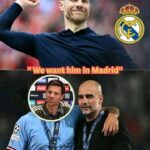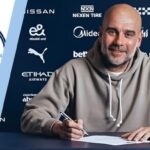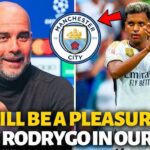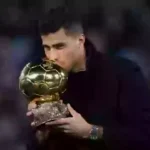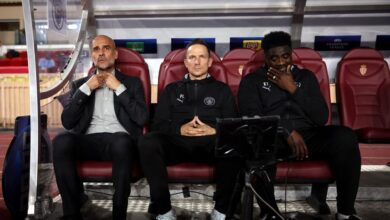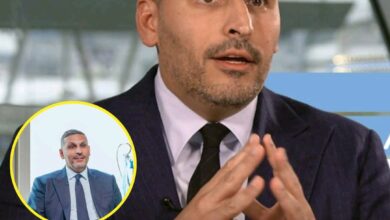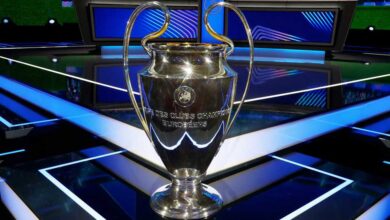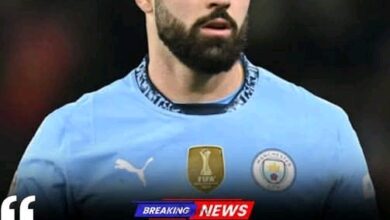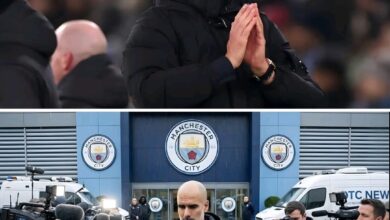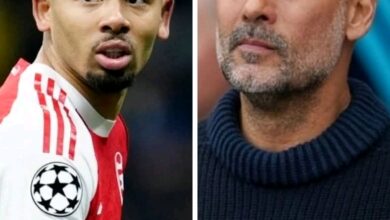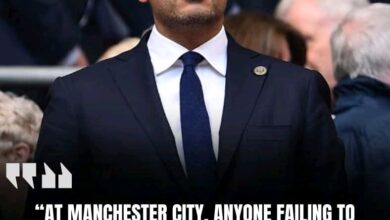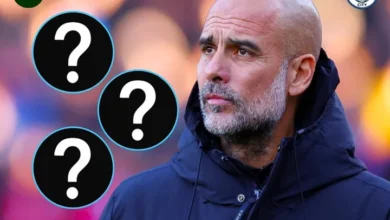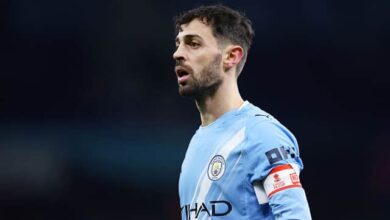Pep agrees contract extension with option of further year until 2027

Manchester City find themselves at a critical juncture as they contemplate offering a new contract to their influential midfielder Rodri. In a season where the reigning Premier League champions have failed to hit their usual dominant stride, the importance of the Spanish international has become increasingly apparent. Currently pushing to secure a Champions League qualification spot rather than defending their title, City’s dependency on Rodri has been highlighted by his extended absence through injury. Against this backdrop, reports have emerged suggesting that Real Madrid are eyeing a summer move for the Ballon d’Or winner, prompting Manchester City to prepare a new contract offer to secure his long-term future. This comprehensive analysis examines the significance of this potential contract extension, evaluating whether it represents good business for the club and exploring the wider implications for both Manchester City and their competitors.
Rodri’s Impact and Importance to Manchester City
The Orchestrator of Guardiola’s System
Since joining Manchester City from Atletico Madrid in 2019, Rodri has evolved into arguably the most important component in Pep Guardiola’s tactical system. Operating as the sole defensive midfielder in City’s preferred 4-3-3 formation, the Spaniard serves as both shield and catalyst, offering defensive stability while simultaneously initiating attacks with his exceptional passing range and vision.
Statistically, Rodri’s influence is undeniable. He maintains a remarkable passing accuracy of 91-92%, suggesting not merely conservative distribution but precise progression of the ball under pressure. His defensive contributions are equally impressive, with the midfielder successfully completing approximately 73% of his attempted tackles—a figure that underscores his ability to disrupt opposition attacks before they develop into genuine threats.
Beyond these quantifiable metrics lies Rodri’s intangible value to Manchester City’s structure. His positional intelligence allows him to anticipate danger and intervene at precisely the right moments, while his composure under pressure provides stability during transitional phases of play. Additionally, his ability to dictate tempo enables City to control matches, accelerating or slowing the pace according to the situation’s demands.
The Champions League Final Hero and Trophy Collector
Rodri’s importance to Manchester City was perhaps most emphatically demonstrated during the 2023 Champions League final against Inter Milan. His decisive strike not only secured City’s first European crown but also completed a historic treble, cementing his status as a player for the biggest occasions. This ability to deliver in crucial moments elevates him beyond being merely an effective system player to someone who actively decides the outcome of season-defining fixtures.
The midfielder’s contribution to City’s unprecedented period of success cannot be overstated. He has been instrumental in securing four consecutive Premier League titles under Guardiola’s leadership, developing from an effective replacement for Fernandinho into a transcendent figure whose influence permeates every aspect of City’s play.
The Revealing Absence
Perhaps the clearest indication of Rodri’s value to Manchester City has come during his enforced absence this season. After suffering an ACL injury in August 2024, the Spaniard has been sidelined for the majority of the current campaign—a period that has coincided with a noticeable decline in City’s performance levels.
Statistical analysis reveals that without Rodri, City’s win percentage has dropped from an impressive 76% when he features to a more modest 63% in his absence. This 13% differential translates to approximately 5 fewer wins across a 38-game Premier League season—the difference between champions and also-rans in England’s competitive top flight.
More than just the results, City’s control of matches has visibly diminished without their midfield lynchpin. Opposition teams have found it easier to transition through central areas, exploiting the space that Rodri typically patrols with such diligence. Simultaneously, City’s build-up play has become more predictable and less incisive, with no other player in the squad capable of replicating his unique combination of defensive awareness and progressive passing.
Real Madrid’s Interest and City’s Response
The Spanish Giants’ Midfield Renovation
Real Madrid’s reported interest in acquiring Rodri aligns with their apparent strategy to revolutionize their midfield department. Despite successfully navigating the post-Casemiro era through the emergence of young talents like Aurélien Tchouaméni and Eduardo Camavinga, Los Blancos appear unconvinced that their current options provide the elite-level control and consistency that defined their most successful periods.
For Madrid, acquiring the reigning Ballon d’Or winner would represent a statement of intent—a return to their Galáctico policy of targeting the world’s most prestigious players. At 28 years old, Rodri offers both immediate impact and several years of high-level performance, making him an appealing target despite the substantial financial investment required.
The cultural and national compatibility factor cannot be overlooked either. As a Spanish international who has excelled in La Liga previously with Atletico Madrid, Rodri would likely adapt seamlessly to life at the Santiago Bernabéu. This combination of tactical suitability, prestige, and cultural fit makes him an ideal target for Madrid’s midfield reconstruction project.
Manchester City’s Contract Strategy
Manchester City’s reported readiness to offer Rodri a new contract reveals both their recognition of his irreplaceable value and their determination to ward off interest from European rivals. By moving proactively rather than reactively in contract negotiations, City demonstrate an understanding that replacing Rodri would be practically impossible in the current market.
The proposed new contract appears designed to achieve multiple objectives simultaneously:
- Cementing Rodri’s Status: By offering improved terms, City acknowledge his elevated standing as the reigning Ballon d’Or winner and one of world football’s most influential players.
- Extended Security: A long-term contract would secure Rodri’s services through his prime years, with the midfielder likely to maintain his elite level of performance well into his early thirties given his playing style’s emphasis on intelligence rather than raw athleticism.
- Deterring Suitors: A new contract with presumably increased release clauses would effectively price out even the wealthiest competitors, including Real Madrid.
- Building for the Future: With Kevin De Bruyne confirming his departure at season’s end and other key players aging, tying down Rodri represents a cornerstone decision in City’s post-Guardiola planning.
Is Offering Rodri a New Contract a Good Decision?
Age and Physical Condition Assessment
At 28 years old, Rodri is entering what traditionally would be considered a midfielder’s prime years. His playing style, which relies more on positional intelligence, tactical awareness, and technical ability rather than explosive athleticism, suggests he could maintain elite performance levels well into his thirties—similar to contemporaries like Toni Kroos and Luka Modrić.
However, his ongoing recovery from a serious ACL injury introduces an element of uncertainty into the equation. While modern medical advancements have improved rehabilitation outcomes significantly, ACL injuries can still affect players’ mobility and confidence, particularly in the first season following their return. City will need assurances about Rodri’s physical condition before committing to a long-term, high-value contract.
That said, Rodri’s previous injury record before this ACL tear was exemplary, suggesting that this current issue may be an anomaly rather than an indication of chronic fragility. His disciplined professionalism and adherence to physical conditioning protocols also bode well for a complete recovery and sustained career longevity.
Financial Implications and Value Assessment
From a financial perspective, a new contract for Rodri would undoubtedly represent a significant investment. Given his status as Ballon d’Or winner and arguably the world’s premier defensive midfielder, his salary demands will likely place him among the highest earners in the Premier League.
Nevertheless, when contextualized against the cost of acquiring a replacement of comparable quality—factoring in transfer fees, agent commissions, signing bonuses, and adaptation periods—extending Rodri’s contract emerges as the more economically prudent option. The midfielder’s familiarity with Guardiola’s system and proven effectiveness within it adds an intangible value that financial analysis alone cannot capture.
Furthermore, allowing a player of Rodri’s caliber to join a direct Champions League rival like Real Madrid would constitute double damage: strengthening a competitor while simultaneously weakening their own squad. This competitive consideration adds another dimension to the financial calculus surrounding the contract decision.
Tactical Irreplaceability
Perhaps the most compelling argument for extending Rodri’s contract lies in his tactical irreplaceability within Manchester City’s system. While the club has demonstrated an impressive ability to find suitable replacements for departing stars—transitioning successfully from players like Vincent Kompany, David Silva, and Sergio Agüero—Rodri presents a unique case.
His specific combination of attributes—defensive positioning, progressive passing, press resistance, tactical intelligence, and big-game temperament—cannot be found in any single alternative currently available in world football. Even highly-rated defensive midfielders like Declan Rice, Martín Zubimendi, or Joshua Kimmich offer different profiles with their own strengths and limitations.
City’s struggles during Rodri’s absence this season provide empirical evidence of this irreplaceability. Neither Mateo Kovačić nor Kalvin Phillips has successfully replicated his influence, with Guardiola frequently forced to reconfigure his entire midfield structure to compensate for the Spaniard’s unavailability.
In this context, securing Rodri’s long-term future represents not merely a retention of a valuable asset but an acknowledgment of his fundamental importance to the team’s tactical identity and competitive capability.
Will Rodri Accept the New Contract?
The Madrid Allure vs. City’s Project
For Spanish players, the gravitational pull of Real Madrid remains powerful. The prestige of representing the most successful club in European history, particularly for a player who has already conquered everything at Manchester City, could present a tempting proposition.
However, several factors suggest Rodri may well be inclined to extend his stay at the Etihad:
- Recognition of His Importance: City’s eagerness to offer improved terms demonstrates their appreciation of his value—a significant consideration for any professional athlete.
- Guardiola’s Influence: The opportunity to continue working under Pep Guardiola, albeit potentially for a limited period given the manager’s own uncertain future, represents a powerful retention factor. Guardiola’s system has provided the framework for Rodri to develop into the world’s best midfielder, culminating in his Ballon d’Or triumph.
- Stability During Rehabilitation: Having suffered a serious injury, stability during recovery and return to play becomes increasingly important. Remaining in familiar surroundings with medical staff who understand his condition offers the optimal environment for a successful comeback.
- Unfinished Business: City’s regression this season, partly attributable to his absence, may inspire Rodri to return and restore the team to their dominant position rather than departing when their dynasty shows signs of vulnerability.
- Financial Package: While Real Madrid possess considerable financial resources, Manchester City’s backing means they can offer a contract package that few clubs worldwide could match or exceed.
These considerations, coupled with his apparent contentment in Manchester since arriving in 2019, suggest that Rodri may indeed be receptive to contract extension discussions despite the inevitable interest from Madrid.
The Broader Implications
For Manchester City’s Future
Securing Rodri’s long-term commitment would represent a significant victory in Manchester City’s transition planning. With Kevin De Bruyne confirming his departure and other key contributors like İlkay Gündoğan, Bernardo Silva, and Kyle Walker entering the later stages of their careers, maintaining continuity through Rodri would provide crucial stability during a period of change.
His presence would facilitate the integration of younger talents like Phil Foden, Rico Lewis, and James McAtee, offering them the security of playing alongside an elite midfield anchor who can compensate for developmental inconsistencies and positional experimentation.
Furthermore, Rodri’s retention would send a powerful message to the football world that despite their current relative struggles, Manchester City remain an elite destination capable of retaining the sport’s most coveted talents even in the face of interest from traditional powerhouses.
For the Premier League Landscape
From a broader competitive perspective, Rodri remaining at Manchester City would maintain the Premier League’s claim to hosting many of the world’s best players. His decision would represent a continuing shift in football’s power dynamics, with England’s top flight increasingly able to resist the traditional pull of Spanish giants.
For City’s domestic rivals, Rodri’s continued presence represents both challenge and opportunity. His excellence ensures that City will likely remain formidable challengers for domestic honors, yet his recent injury has revealed a vulnerability that was previously hidden—a dependency that astute opponents might continue to exploit even after his return.
Conclusion: A Decision That Transcends Economics
Ultimately, offering Rodri a new contract transcends pure financial or sporting calculation—it represents a philosophical statement about Manchester City’s future direction. After a period of unprecedented domestic dominance underpinned by the Spaniard’s metronomic excellence, City now face a critical juncture as key personnel approach transition points in their careers.
Securing Rodri’s services for the long term would provide continuity during this evolution while simultaneously blocking a potentially transformative acquisition for one of their principal European rivals. At 28, with his recovery from injury ongoing, some financial risk exists in making such a commitment—but the alternative scenario of seeing him orchestrate Madrid’s midfield while City struggle to find an adequate replacement presents a far greater competitive risk.
The reported willingness of both parties to progress contract discussions suggests a mutual recognition of their symbiotic relationship. For City, Rodri represents tactical certainty in an uncertain future. For Rodri, Manchester City offers an environment where his unique talents are not merely appreciated but central to the club’s identity and ambitions.
In this context, offering Rodri a new contract emerges not simply as a good decision but as an essential one for a club determined to maintain their position at football’s elite level. The true measure of its wisdom will ultimately be determined by the midfielder’s physical recovery and subsequent performance level—but based on all available evidence, securing the Ballon d’Or winner’s future represents Manchester City’s most important business of 2025, regardless of which other stars may arrive or depart.
